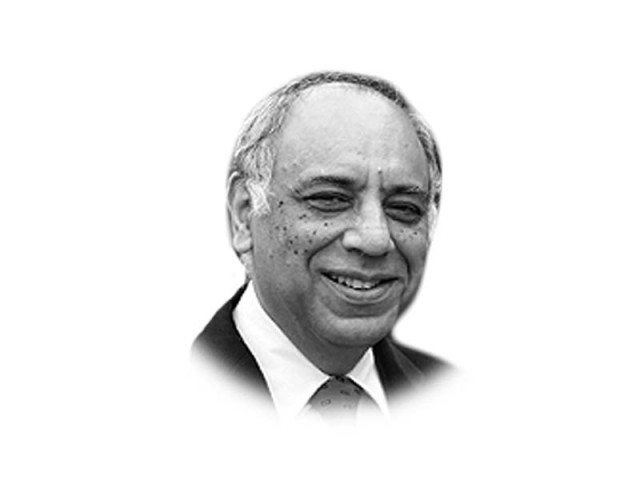Is more religion the answer?
Religious education with a focus on belief divorced from action is not the same as an emphasis on ethics

The writer is a Fellow at the Consortium for Development Policy Research in Lahore
A committee of the National Assembly passed a bill to make teaching the Holy Quran compulsory in grades one to 12 in all federal educational institutions. According to the committee chair, “the bill is one of the good steps and will benefit students.” The education minister added that “this bill was moved because it was the people’s demand and was the need of the hour.” The text of the bill states that “it will make the divine message understood; ensure the repose of society; peace and tranquillity; promote the supreme human values of truth, honesty, integrity, character building, tolerance, understanding others’ point of view and way of life. It will lead towards spreading goodness and auspiciousness and towards ending chaos and uncertainty.”
The Department of Elementary and Secondary Education of the Khyber-Pakhtunkhwa (K-P) government placed a front-page announcement in national newspapers that it was ahead of the game as the only province to have already implemented such an initiative. “We are ever-committed to harvesting all-rounder children to fully contribute to our society,” it claimed proudly.
The Punjab government chimed in with a more modest suggestion. The minister for higher education lamented, “We are leaving our religion behind, we are forgetting our culture and ethics. Hence, I have made the hijab compulsory for our women and sisters in colleges.” He added it was his duty to take this step, “as it is the duty of every Muslim.” He also thought through an operational plan, “I have also made a policy for it, if your attendance falls below 60pc then we will give 5pc attendance to those girls who wear a hijab.” When the government had second thoughts on the idea the public prosecutor stepped in to salvage the prestige of the province. He offered to guarantee the acquittal of 42 Christians accused of a crime if they agreed to embrace Islam.
Soon thereafter, the newly-appointed Chief Justice of Azad Jammu and Kashmir announced that prayers had been made mandatory and that the annual increment for court employees would be conditional on the regular offering of prayers, which, he said, would be secretly checked. We might be hearing the same from the governments of Sindh and Balochistan soon, but the trends seem fairly clear about the direction in which we are headed.
No one would fail to applaud the desire to improve society. Things are so abysmal that it is difficult to think of a single governmental transaction that is free of fraud and graft. And the state of general morality is so degraded that few are willing to engage in market transactions without first securing a trusted personal connection with the transacting party.
There are, however, two concerns. The first is that those pushing for piety are among the more impious. Not even the Ministry of Haj and Religious Affairs is spotless. And how transparent is the K-P department of education in appointing people to its own sub-departments? When the dishonest begin pushing honesty, the red flags automatically are raised. This could be just another distraction while the loot continues uninterrupted.
Second, we simultaneously live in the age of religion and science. Where, one wonders, is the evidence on which all these policy proposals are based? On what basis is it argued that Quranic teaching from grades one to 12 or wearing hijab in colleges would make us more pious? If this is only a belief of some individuals, why is it getting privileged without any empirical support?
What there is by way of evidence might suggest contrary conclusions. At least since Ziaul Haq, there has been an exponential increase in religiosity, as well as nationalism with the infusion of Islamic and Pakistan Studies throughout the education system, but Pakistan has only declined on the corruption index of Transparency International.
The number of mosques per square kilometre has risen steeply to the point. The number of mentions of God per hundred words spoken in languages in Pakistan is now perhaps higher than in any other language in the world. The number of madrassas has multiplied without any increase in peace or tranquillity. Rather, the growth in strife and intra-religious bigotry is there for all to observe.
This evidence suggests that more religion is unlikely to reverse the trends. The reason might be that most people have compartmentalised their behaviour into separate compartments for religion and practical life. This is best exemplified by the apocryphal story of the Pakistani importer visiting China, who requested his host to give him spurious merchandise at inflated prices but nothing apart from halal food products. We see the equivalent at home every day when bureaucrats and shopkeepers suspend all activities at prayer times only to resume fleecing clients and customers once they return from the mosques.
If this characterisation is correct, pumping more religion into the religious compartment will have little impact on behaviour. It is because the social system we have validated is one in which all that matters is how rich one is, no matter how one accumulated the wealth. Wisdom, integrity and simplicity have all become the hallmarks of fools and the unworldly.
Religious education with a focus on belief divorced from action is not the same as an emphasis on ethics that guide actions independent of belief. Ghalib articulated this long ago: nahiin kuchh subbha-o zunnaar ke phanday men giiraaii, vafaadaarii men shaykh-o barhamin kii aazmaa’ish hai.
Published in The Express Tribune, April 27th, 2017.
Like Opinion & Editorial on Facebook, follow @ETOpEd on Twitter to receive all updates on all our daily pieces.














COMMENTS
Comments are moderated and generally will be posted if they are on-topic and not abusive.
For more information, please see our Comments FAQ